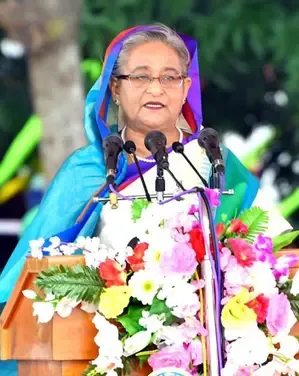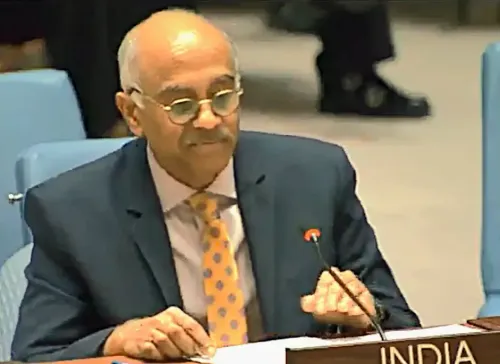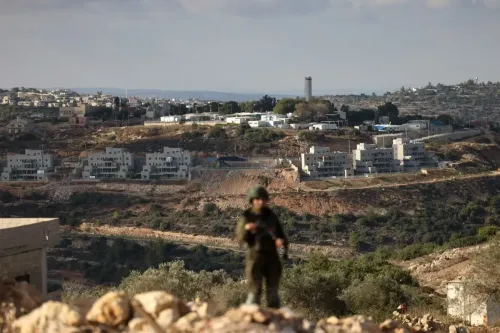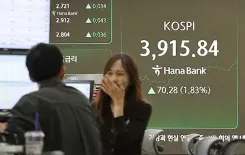Is Bangladesh Facing a Surge in Islamist Militancy and Unrest?
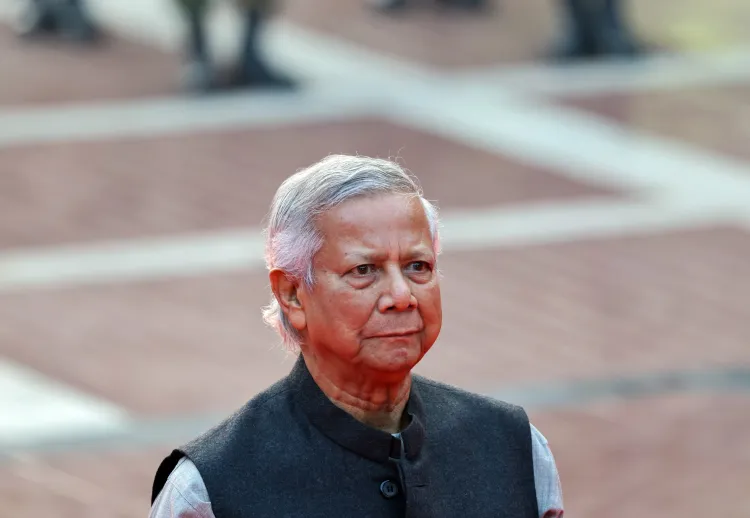
Synopsis
Key Takeaways
- Bangladesh is facing its worst crisis in over a decade, driven by extremism and unrest.
- Violence against women has significantly increased, raising alarm bells across the nation.
- The current interim government is criticized for its failure to restore law and order.
- Calls for the return of the Awami League to power are growing among the populace.
- The upcoming elections are under scrutiny due to the government's controversial actions.
Dhaka, Sep 5 (NationPress) Bangladesh is currently facing its most profound crisis in over a decade, driven by Islamist militancy, extremism, economic turmoil, rising unemployment, a deteriorating law and order situation, and widespread unrest under the interim government led by Muhammad Yunus, as detailed in a report released on Friday.
According to well-known Bangladeshi journalist, historian, and political analyst Syed Badrul Ahsan in Northeast News, the nation has seen a troubling surge in violence against women, shedding light on the systemic failures of law enforcement and social protections.
In the initial six months of 2025, official statistics reveal over 4,200 cases of rape and sexual assault, including at least 650 incidents of gang rape, a significant increase from 3,100 cases reported during the same timeframe in 2024.
Ahsan notes that Bangladesh has devolved into a realm of speculation, with suppression of dissent and truth raising critical questions about the nation's political future.
He states, 'The political crisis that emerged in August last year has deepened. In the 13 months since a meticulously orchestrated conspiracy ousted the Awami League from power in an unconstitutional manner, mobs aligned with or supported by the current regime have wreaked havoc across the nation.'
Ahsan emphasizes that the conscious failure of the Yunus administration to restore order and civility has led to a scenario where calls for a return of the Awami League to mainstream politics are burgeoning.
Moreover, as mob rule takes precedence, there have been escalating violations of the rights of ethnic and religious minorities, with significant human rights abuses reported. Yunus continues to question the misdeeds of Sheikh Hasina's administration while simultaneously endorsing political intolerance, stifling press freedom, manipulating the judiciary, and employing the ICT and sedition laws against pro-Awami League and political adversaries.
The Yunus administration has also been accused of leveraging students to legitimize various unlawful and unconstitutional activities aimed at maintaining power, as highlighted in the Northeast News opinion piece.
The Chief Advisor of the interim government has disregarded constitutional conventions and norms, ignoring President Mohammad Sahabuddin, the only individual constitutionally holding office in Bangladesh today.
Additionally, there is a growing sentiment in Bangladesh that the interim regime is 'morally and politically unfit' to oversee the upcoming general election due to its contentious actions against the Awami League.
'Furthermore, the interim administration has been criticized for neglecting the preservation of Bangladesh's history and historical landmarks, in collusion with law enforcement agencies. The nation, home to 170 million people, witnessed widespread lawlessness when a mob destroyed the residence of Jatir Pita (Father of the Nation) Sheikh Mujibur Rahman on February 5 this year. In full view of security personnel, the mob unleashed excavators and bulldozers to attack the Dhanmondi building, also vandalizing the homes of Awami League leaders,' Ahsan reported.
According to the esteemed author, the people of Bangladesh are recognizing the urgent need for rule of law and a commitment to restoring order.
'Security forces acted swiftly against members of a small group, Gono Odhikar Andolan, led by former DUCSU vice president Nurul Haque Nur, to prevent potential harm to the Jatiyo Party offices. Interestingly, these actions by security forces occurred independently of the Yunus regime, sending a broader political message to the anarchists,' observed Ahsan.
'For Bangladesh to once again embrace the rule of law, comprehensive political change is essential,' he asserted.
Ahsan argues that there are valid reasons to believe that the unelected Yunus and his interim administration are hesitant to pursue electoral measures, even with the election timeline for February 2026 having been announced.
'Yunus, the individual currently governing Bangladesh, did not ascend to power through a legitimate mandate. As the Awami League has asserted, the reality is straightforward: Yunus occupies his position not through lawful means, but through deceit and force. The oath he took is invalid. The authority he wields is illegitimate, and the system that permitted this fraud to transpire is severely compromised. Yet, the judiciary remains silent,' he concluded.

